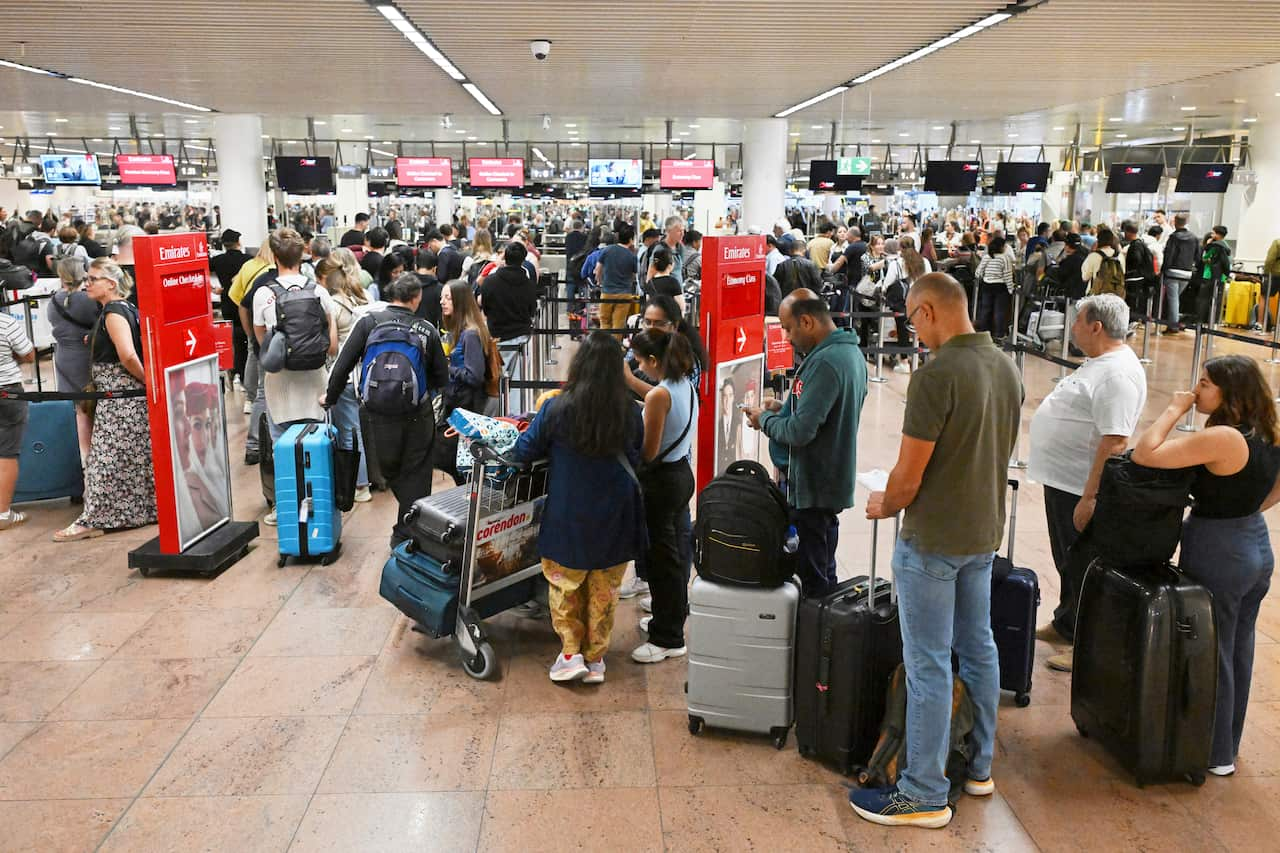Some of Europe's busiest airports including London's Heathrow have been affected by a cyber attack against a provider of check-in and boarding systems, causing flight delays and cancellations.
Brussels Airport, Berlin Airport were both affected while Dublin Airport said it was also facing minor impact from the issue, along with Cork Airport, Ireland's second biggest after Dublin.
At Heathrow, Berlin and Brussels, dozens of flight departures and arrivals were cancelled, aviation data provider Cirium said. Officials in Brussels said there had been four flight diversions, as well as "delays on most of the departing flights."
Brussels Airport said it had asked airlines to cancel half of their scheduled departing flights on Sunday to avoid long queues and late cancellations, signalling that the disruption would continue through the weekend.
The disruption is the latest in a string of hacks targeting governments and companies across the world, hitting sectors from healthcare and defence to retail and autos. A recent breach at luxury carmaker Jaguar Land Rover brought its production to a halt.
What was impacted in the cyberattack?
The attack affected the MUSE software made by Collins Aerospace, which provides systems for several airlines at airports globally.
The aviation tech company, which specialises in digital and data processing services, is a subsidiary of the American aerospace and defence group RTX, formerly known as Raytheon.
RTX said it was aware of a "cyber-related disruption" to the software at selected airports, without naming them.
"The impact is limited to electronic customer check-in and baggage drop and can be mitigated with manual check-in operations," RTX said in a statement, adding that it was working to fix the issue as quickly as possible.

A European Commission spokesperson said there were currently no indications of a "widespread or severe attack" and that the origin of the incident was still under investigation.
Who was behind the attack?
RTX did not give any information on who might be behind the attack.
These kinds of sweeping outages are typically the result either of ransomware attacks, where online extortionists paralyse corporate networks in the hope of payment, or deliberate digital sabotage.
Rafe Pilling, director of threat intelligence at cybersecurity company Sophos, said the impact of the incident highlighted "the fragile and interdependent nature of the digital ecosystem underpinning air travel".
"We've seen huge impact across retail and currently automotive in the UK this year," he said.
"The threat is significant and very real."
Several breach-tracking websites have previously said that Collins Aerospace was hit by ransom-seeking hackers in 2023.
Aviation industry 'prime target' for cyber attacks
Cyber attacks and tech outages have disrupted airports around the world in recent years, from Japan to Germany, as air travel increasingly relies on online, interconnected systems.
The aviation sector saw a 600 per cent increase in cyber attacks from 2024 to 2025, according to a report by French aerospace company Thales released in June.
"From airlines and airports to navigation systems and suppliers, every link in the chain is vulnerable to attack," the report warned, pointing out that the strategically and economically important sector had become a "prime target" for cyber attacks.
Aviation expert Anita Mendiratta, who is also a special adviser to the secretary general of UN tourism, told Agence France-Presse it was difficult to know who was behind the attack.
But she stressed it was "a disruption caused to a software not a specific airport" and it was important to try to "contain the contagion".
For the latest from SBS News, download our app and subscribe to our newsletter.

